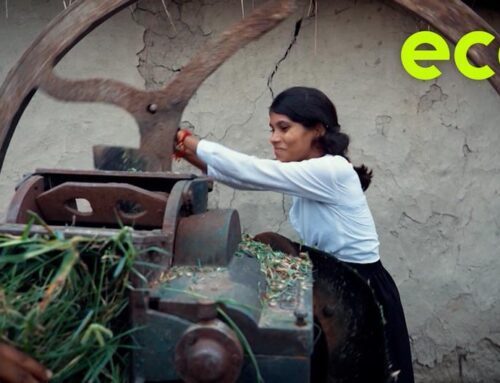Complex risk environment challenges Australian meat processors
November 27, 2025
Complex risk environment challenges Australian meat processors | Insurance Business
Report uncovers deficiencies in meat processing insurance coverage

Australia’s meat processing sector faces mounting pressure from multiple directions as organisations grapple with an increasingly complex risk environment. An analysis from Lockton Australia examines the challenges confronting producers and processors, while identifying insurance solutions that are not widely adopted across the industry.
The sector confronts a multifaceted risk profile spanning several distinct areas. Contamination events and product recalls represent immediate operational threats, with bacterial outbreaks potentially triggering regulatory action and reputational consequences. Upstream supply chain vulnerabilities create additional exposure, particularly given global livestock availability constraints and disease transmission risks.
Simultaneously, machinery-dependent operations face disruption from equipment failure, while digital infrastructure requires protection against cybersecurity threats. Personnel-related challenges compound these pressures through labour availability constraints and occupational health considerations. Regulatory obligations regarding waste handling, emissions management, and employment standards continue to intensify.
Insurance coverage deficiencies
Lockton’s report noted that many meat processing operators maintain insurance portfolios that may not address contemporary risk exposures. Cyber insurance is not frequently prioritised despite growing automation within production facilities. Data breach liability, ransomware incidents, and systems failures pose material threats that traditional policies may not comprehensively address.
Supply chain insurance similarly presents a gap between current coverage and actual exposure. When upstream suppliers face disruption, standard business interruption provisions may provide incomplete protection. Contingent coverage arrangements and extended supply chain protection address these limitations.
Automated processing environments introduce distinct continuity challenges. Manufacturing replacement components for specialised equipment often requires extended lead times. “Waiting periods on specialist equipment can significantly extend the indemnity period and drive up insurance premiums,” the report said. Scenario planning that evaluates backup systems, expedited procurement, and alternative restoration approaches addresses these lead time constraints.
Dedicated recall insurance covers immediate expenses including communication management, legal costs, and product remediation. Environmental liability coverage addresses regulatory exposure and remediation obligations associated with tightening environmental standards.
2026 outlook and emerging challenges
Several developments will reshape risk dynamics for meat processors entering 2026. Environmental and social governance requirements will transition from voluntary to mandatory, with supply chain stakeholders demanding substantiated ESG performance data. Cybercriminals increasingly target food production systems during peak operational periods through system infiltration, social engineering attacks, and distributed infrastructure failures.
Alternative protein commercialisation will generate product development uncertainties and regulatory gaps for hybrid operations. Climate volatility will create raw material sourcing instability and production scheduling disruptions. Regulatory technology platforms will automate compliance administration while introducing third-party system dependencies and automation-related error risks.
Australian risk environment context
Recent industry research corroborates Lockton’s assessment. Data gathered by Aon plc from risk management executives across 63 nations – including 3,000 respondents from Australia and New Zealand – positions cybersecurity as the primary business risk for Australian operations. The research indicated that 93% of Australian respondents maintain established protocols for reviewing cyber risk assessments.
Legislative and regulatory developments continue as persistent challenges for Australian enterprises, having maintained elevated concern levels across two decades of business conditions. Talent recruitment and retention constitute particular vulnerabilities, ranking among the top operational concerns. Personnel shortages have become increasingly acute locally despite reduced global emphasis on this category.
Meteorological events newly entered the Australian risk priority ranking, reflecting elevated exposure to climate-related business losses. Analysis indicates 79% of Australian enterprises absorbed financial losses from weather-related events, representing the highest incidence across all risk categories.
Strategic recommendations
According to Lockton’s report, meat processing stakeholders should execute thorough exposure assessments concentrating on emerging technological dependencies and sourcing vulnerabilities. Existing insurance arrangements require evaluation against contemporary threats, particularly regarding digital and supply chain protections. Engagement with industry-specialised brokers enables risk management practices to address sector-specific exposures. Concurrent investment in preventive technologies and workforce development reduces future loss frequency. The report said: “Companies that proactively identify and insure against these evolving risks will help enhance resilience, maintain regulatory compliance, and safeguard their market reputation.”
Related Stories
LATEST NEWS
Search
RECENT PRESS RELEASES
Stellar Mercator acquires 9.09% stake in Amigo Holdings By Investing.com
SWI Editorial Staff2025-11-27T10:34:08-08:00November 27, 2025|
Did Growing Legal and AI Challenges Just Shift CoStar Group’s (CSGP) Investment Narrative?
SWI Editorial Staff2025-11-27T10:33:49-08:00November 27, 2025|
Brazil joins Italy in probing WhatsApp’s new rules for AI chatbots
SWI Editorial Staff2025-11-27T10:33:27-08:00November 27, 2025|
I was a senior director of GenAI at Meta. I have 4 tips for breaking into AI — including w
SWI Editorial Staff2025-11-27T10:33:04-08:00November 27, 2025|
India’s Serentica Renewables to Invest $11 Billion in Clean Energy
SWI Editorial Staff2025-11-27T09:30:01-08:00November 27, 2025|
Uruguay Achieves 99% Green Energy After Seeking the Lowest Price for Consumers
SWI Editorial Staff2025-11-27T09:29:45-08:00November 27, 2025|
Related Post









